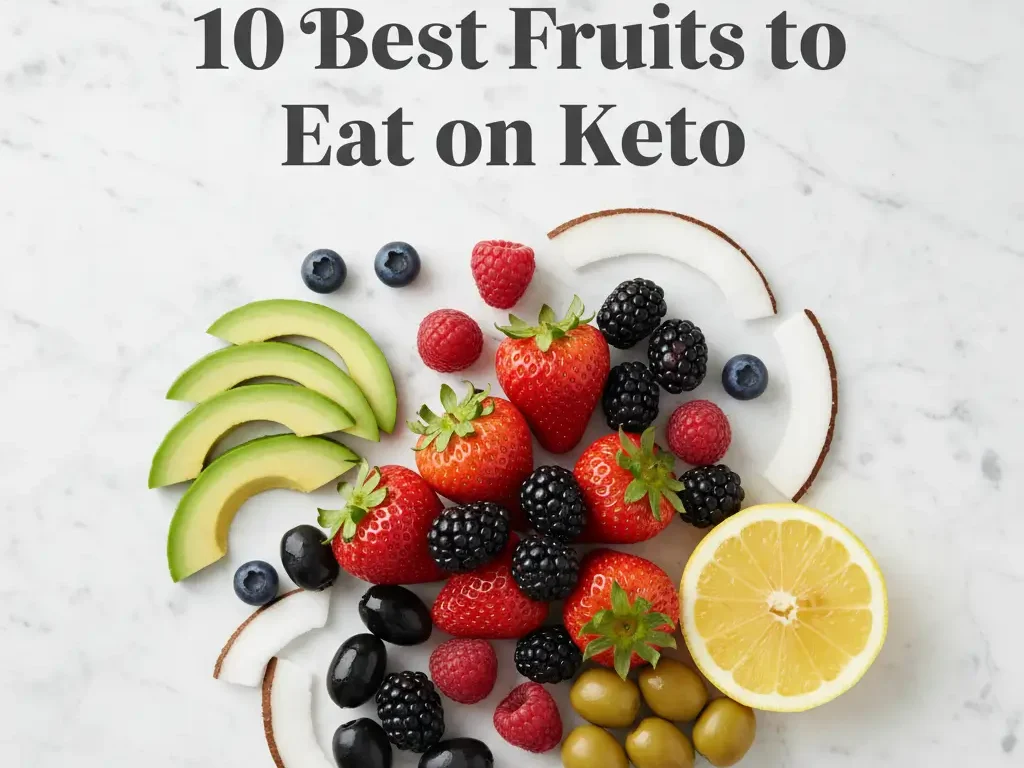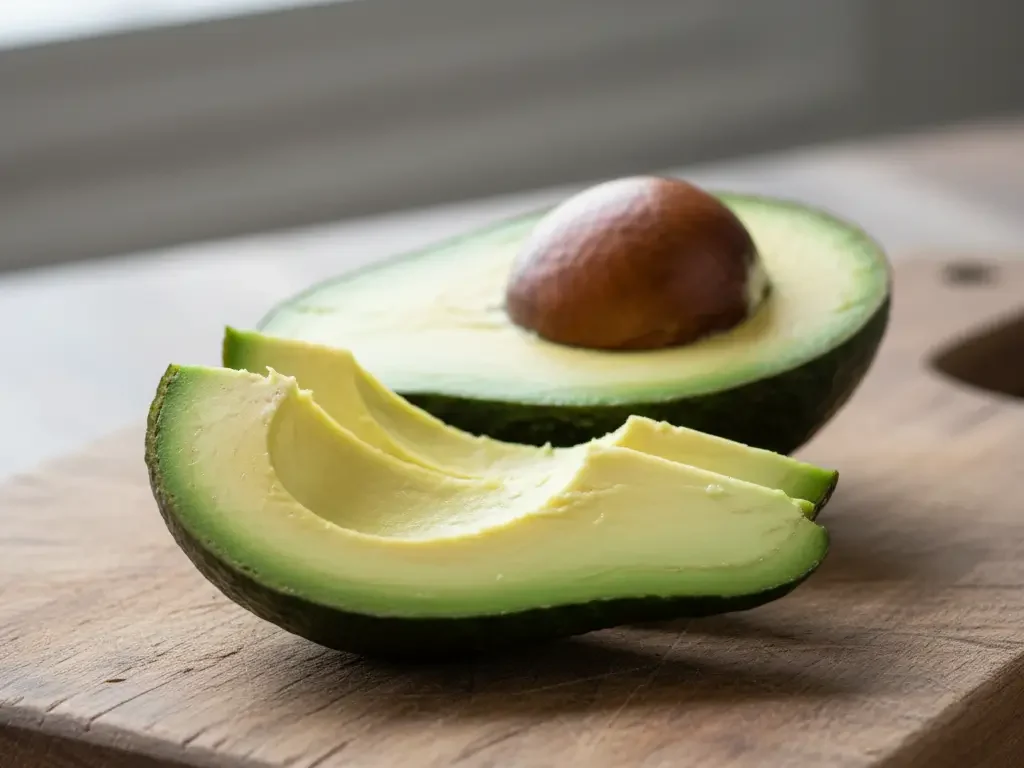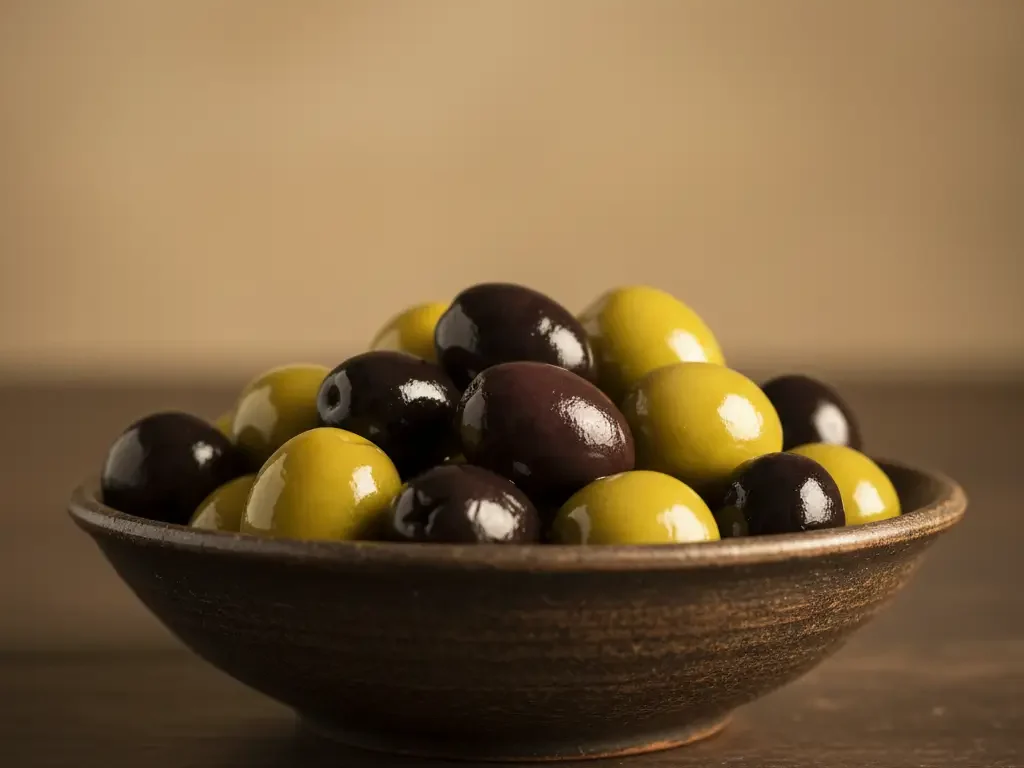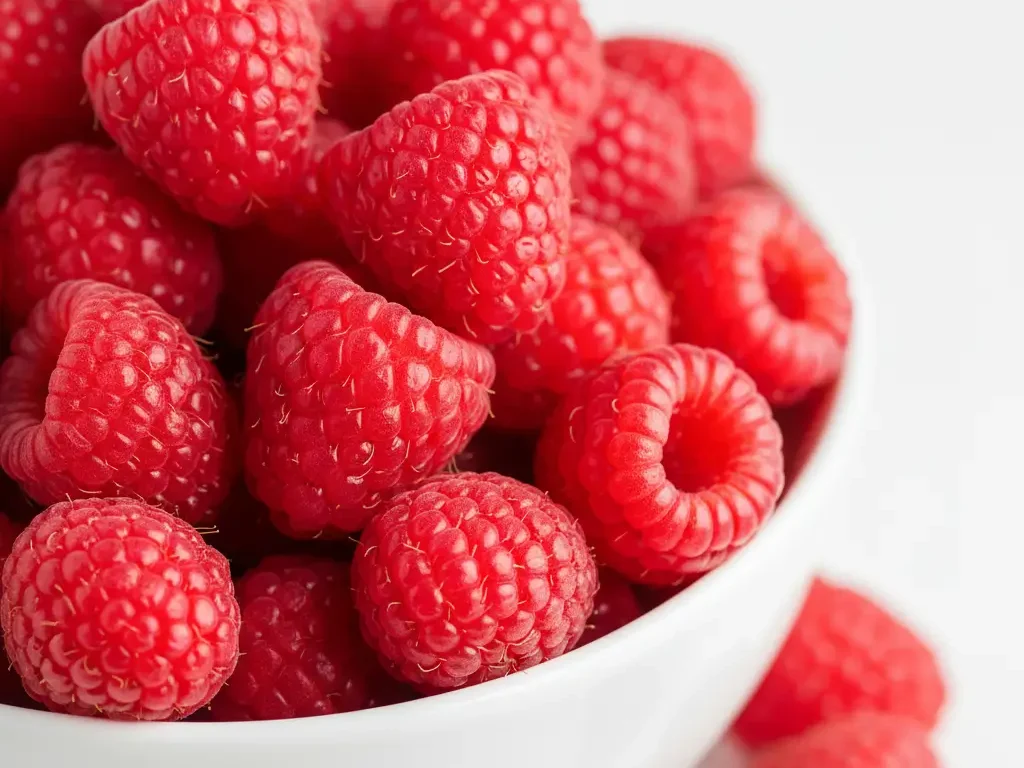
Introduction
Eating the right keto-friendly fruits is essential for maintaining ketosis while enjoying natural sweetness and essential nutrients. In this guide, we’ll explore 10 top choices, including a variety of keto-friendly fruits that can enhance your low-carb lifestyle.
Many people assume that fruit is off-limits in a ketogenic diet because of its natural sugars. But that’s a misconception: not all fruits are carb bombs. There are several low‑carb, nutrient-dense fruits that can be included in a keto eating plan — as long as you keep portions in check. These fruits are not only low in net carbs, but they also deliver fiber, healthy fats, vitamins, and antioxidants, making them smart additions for both your health and your keto goals.
Incorporating keto-friendly fruits into your meals can provide not only flavor but also vital nutrients that support your health. By choosing the right varieties, you can enjoy the benefits of these keto-friendly fruits without exceeding your carb limits.
Let’s dive deeper into these 10 amazing keto-friendly fruits that can supercharge your diet and keep you in ketosis.
Here, we explore 10 of the best keto-friendly fruits. For each, you’ll get:
- An overview / introduction
- Key benefits
- Nutritional profile (especially carbs)
- Why it’s suitable for keto
- Tips to use it on a keto diet
1. Avocados: A Top Choice Among Keto-Friendly Fruits

Introduction & Overview
Avocado is often hailed as the superstar of the ketogenic diet — and for good reason. This creamy, versatile fruit is rich in healthy fats, low in carbohydrates, and packed with essential vitamins and minerals. Unlike many fruits that are high in sugar, avocados are unique because their primary macronutrient is monounsaturated fat, making them an ideal addition to a list of keto-friendly fruits for anyone following a low-carb or ketogenic lifestyle.
Avocados belong to the Lauraceae family and are native to Central and South America. There are many varieties, such as Hass, Fuerte, and Bacon, but Hass avocados are the most popular due to their creamy texture and buttery taste. Beyond taste, avocados are prized for their nutritional density and versatility in both sweet and savory dishes — a major reason they are frequently highlighted among keto-friendly fruits.
Avocados provide fiber, antioxidants, and heart-healthy fats, making them not only delicious but also one of the most beneficial keto-friendly fruits for maintaining stable energy, supporting digestion, and nourishing the body on a ketogenic diet.
Nutritional Profile (per 100 g)
| Nutrient | Amount |
|---|---|
| Total Carbs | 8.5 g |
| Fiber | 7 g |
| Net Carbs | ~1.5 g |
| Fat | 15 g |
| Protein | 2 g |
| Calories | 160 kcal |
| Vitamin K | 26 µg (33% DV) |
| Folate (B9) | 81 µg (20% DV) |
| Vitamin C | 10 mg (12% DV) |
| Potassium | 485 mg (10% DV) |
| Vitamin E | 2.1 mg (14% DV) |
| Magnesium | 29 mg (7% DV) |
Key Notes:
- Net carbs are extremely low (~1.5 g per 100 g), making avocado one of the most keto-friendly fruits.
- Packed with healthy fats that fuel the body during ketosis.
- Rich in fiber, which supports digestion and reduces the net impact of carbs.
Health Benefits of Avocado
- Supports Ketosis
- The high monounsaturated fat content in avocados provides a sustained energy source for keto dieters. It helps the body rely on fat rather than glucose for energy.
- Heart Health
- Avocados are rich in oleic acid, a heart-healthy fat that can help reduce inflammation and improve cholesterol levels.
- Studies show that monounsaturated fats can lower LDL (“bad” cholesterol) while raising HDL (“good” cholesterol).
- Blood Sugar Regulation
- Low in sugar and carbs, avocados have minimal impact on blood glucose, making them suitable for both keto and diabetic diets.
- Potassium Powerhouse
- Potassium helps maintain electrolyte balance — crucial for those in ketosis, as low-carb diets can lead to electrolyte depletion.
- One avocado contains more potassium than a banana, supporting muscle function and blood pressure regulation.
- Rich in Fiber
- Fiber supports healthy digestion and improves gut microbiota.
- The combination of fat and fiber promotes satiety, helping with appetite control.
- Anti-inflammatory and Antioxidant Support
- Avocados contain carotenoids like lutein and zeaxanthin, supporting eye health.
- Antioxidants help combat oxidative stress, which is important for long-term health and chronic disease prevention.
- Bone & Brain Health
- Vitamin K supports bone mineral density.
- Healthy fats are essential for brain function, and avocado provides a bioavailable source of these fats.
Why Avocado Is Perfect for Keto
- Extremely Low Net Carbs: With only ~1.5 g net carbs per 100 g, avocados won’t interfere with ketosis.
- High in Fat: The main macronutrient is fat, which is ideal for meeting keto macro requirements.
- Versatile Usage: Can be eaten raw, mashed, or blended into smoothies, soups, salads, or even desserts.
- Satiety Booster: The combination of fat and fiber keeps you full for hours, reducing cravings for high-carb foods.
How to Include Avocado on Keto
- Guacamole: Mix mashed avocado with lime juice, salt, and diced vegetables.
- Smoothies: Blend with unsweetened almond milk, spinach, and a few berries for a creamy keto drink.
- Salads & Bowls: Slice avocado over leafy greens, eggs, or keto-friendly grains like cauliflower rice.
- Keto Toast: Use mashed avocado on low-carb bread or as a topping for eggs.
- Desserts: Use avocado in keto mousse or pudding recipes — it provides creaminess without added carbs.
- Snacking: Eat with a pinch of salt, chili, or lime for a simple, filling snack.
2. Olives: A Salty Keto Superfruit

Introduction & Overview
Olives are small, savory fruits that play a surprisingly powerful role in a well-structured ketogenic diet. Though often associated with olive oil or used as a garnish, whole olives are nutrient-dense, low in carbs, and high in healthy fats — making them one of the most valuable keto-friendly fruits for boosting satiety and supporting ketosis.
Olives belong to the Oleaceae family and are native to the Mediterranean region. With varieties such as Kalamata, Manzanilla, and Castelvetrano, olives offer diverse textures and flavors — from mild and buttery to tangy and briny. Beyond their taste, olives stand out among keto-friendly fruits for their abundance of heart-healthy monounsaturated fats, antioxidants, polyphenols, and anti-inflammatory compounds that support long-term health.
Nutritional Profile (per 100 g)
| Nutrient | Amount |
|---|---|
| Total Carbs | 6 g |
| Fiber | 3 g |
| Net Carbs | ~3 g |
| Fat | 15 g |
| Protein | 1 g |
| Calories | 145 kcal |
| Vitamin E | 3.8 mg (25% DV) |
| Iron | 3.3 mg (18% DV) |
| Copper | 0.2 mg (22% DV) |
| Sodium | 735 mg (varies by type) |
| Polyphenols | 200–300 mg (varies by type) |
Key Notes:
- Low net carbs (~3 g per 100 g) — ideal for keto diets.
- Rich in monounsaturated fats — the same heart-healthy fat found in olive oil.
- High in antioxidants and polyphenols, which combat oxidative stress and inflammation.
Health Benefits of Olives
- Supports Ketosis
- The high fat content provides a steady energy source, helping the body stay in ketosis.
- Low net carbs mean olives can be eaten as a snack or salad topping without disrupting your keto macros.
- Heart Health & Cholesterol Management
- Olives are rich in monounsaturated fats, especially oleic acid, which can reduce LDL cholesterol and raise HDL cholesterol.
- Regular consumption may help lower blood pressure and improve overall cardiovascular health.
- Powerful Antioxidant Content
- Olives are packed with polyphenols, flavonoids, and vitamin E, which protect cells from oxidative stress.
- These compounds may also reduce inflammation and lower the risk of chronic diseases.
- Bone & Joint Support
- Some studies suggest that polyphenols in olives help preserve bone density and reduce inflammation in joints.
- Digestive Health
- Olives provide dietary fiber, which supports gut health and regular bowel movements.
- Blood Sugar Regulation
- Very low in sugar and carbs, olives help maintain stable blood glucose levels, making them suitable for keto and diabetic diets.
Why Olives Are Perfect for Keto
- Low in Net Carbs: Only ~3 g per 100 g, making them ideal for daily keto consumption.
- High in Healthy Fats: Supports energy needs and helps maintain ketosis.
- Nutrient-Dense: Contain vitamin E, iron, copper, and polyphenols for long-term health.
- Versatile: Can be eaten alone, added to salads, or incorporated into keto recipes for flavor and fat content.
How to Include Olives on Keto
- As a Snack: Enjoy a small bowl of olives with a few slices of cheese for a keto-friendly snack.
- Salads: Add Kalamata or green olives to Greek salads or mixed greens for extra fat and flavor.
- Tapenade: Make an olive tapenade using olive oil, garlic, and herbs to spread on low-carb crackers or vegetables.
- Keto Pizza Topping: Slice olives over cauliflower or almond flour-based keto pizza for savory taste.
- Cooking & Sauces: Chop olives into keto-friendly sauces, stews, or casseroles for flavor and nutrition.
- Pairing with Proteins: Olives complement meats like chicken, salmon, or beef in Mediterranean-style dishes.
3. Strawberries: Sweet & Low-Carb Keto-Friendly Fruits

Introduction & Overview
Strawberries are one of the most beloved berries worldwide, known for their vibrant red color, juicy texture, and naturally sweet yet tart flavor. Despite their sweetness, strawberries are surprisingly low in net carbs, making them one of the most enjoyable keto-friendly fruits for anyone craving a natural dessert or a burst of flavor in their meals.
Originating in Europe and North America, strawberries belong to the Rosaceae family. They are not only delicious but also packed with antioxidants, vitamins, and fiber, making them a highly nutritious option among keto-friendly fruits. Their versatility allows them to be used in smoothies, desserts, salads, or simply enjoyed fresh, making them a staple in many low-carb and ketogenic diets.
Nutritional Profile (per 100 g)
| Nutrient | Amount |
|---|---|
| Total Carbs | 7.7 g |
| Fiber | 2 g |
| Net Carbs | ~5.7 g |
| Fat | 0.3 g |
| Protein | 0.7 g |
| Calories | 32 kcal |
| Vitamin C | 59 mg (98% DV) |
| Manganese | 0.4 mg (19% DV) |
| Folate (B9) | 24 µg (6% DV) |
| Potassium | 153 mg (4% DV) |
| Antioxidants | High in anthocyanins and flavonoids |
Key Notes:
- Strawberries are low in net carbs (~5.7 g per 100 g), making them suitable for keto in moderate portions.
- Rich in vitamin C, antioxidants, and fiber, supporting immune and digestive health.
- Their sweet taste makes them a satisfying low-carb treat.
Health Benefits of Strawberries
- Keto-Compatible Sweetness
- Strawberries satisfy sweet cravings without adding excessive carbs.
- Their combination of low sugar and high fiber helps maintain stable blood sugar levels.
- Rich in Antioxidants
- Anthocyanins and flavonoids in strawberries protect cells from oxidative damage.
- These compounds may reduce inflammation and support heart health.
- Supports Immune Function
- High vitamin C content (almost 100% DV per 100 g) strengthens the immune system.
- Antioxidants further enhance overall immunity.
- Digestive Health & Satiety
- Fiber promotes healthy digestion and regular bowel movements.
- Pairing strawberries with fat (like cream or nuts) in keto meals increases satiety.
- Heart Health
- Polyphenols in strawberries may help lower LDL cholesterol and support healthy blood pressure.
- Weight Management
- Low in calories but high in flavor, strawberries help satisfy cravings without affecting keto macros.
Why Strawberries Are Perfect for Keto
- Low Net Carbs: With ~5.7 g net carbs per 100 g, strawberries can be enjoyed in small portions while staying within daily carb limits.
- Nutrient-Rich: Provides vitamin C, fiber, manganese, and antioxidants — essential for overall health.
- Versatile & Delicious: Can be eaten raw, blended into keto smoothies, or used as a topping on keto desserts.
- Sweet Satisfaction: Offers natural sweetness without the need for added sugars.
How to Include Strawberries on Keto
- Fresh Snack: Eat a handful of strawberries with a few nuts or keto-friendly cream.
- Keto Smoothies: Blend with unsweetened almond milk, avocado, or spinach for a creamy low-carb smoothie.
- Dessert Topping: Slice over keto cheesecake, mousse, or yogurt for flavor and nutrition.
- Salads: Add sliced strawberries to spinach or arugula salads with avocado and olive oil.
- Fat Bombs & Chia Pudding: Mix strawberries into keto fat bombs or chia pudding for sweetness and fiber.
4. Raspberries: Tart, Fiber-Rich, and Keto-Friendly

Introduction & Overview
Raspberries are among the most popular keto-friendly fruits due to their low net carbs and high fiber.
Raspberries are small, vibrant berries known for their bright red color, tangy-sweet flavor, and nutrient density. Despite their natural sweetness, they are surprisingly low in net carbs, making them an ideal keto-friendly fruit.
Native to Europe and North America, raspberries belong to the Rosaceae family and are closely related to strawberries and blackberries. They are rich in antioxidants, fiber, and essential vitamins, making them a healthy choice for anyone following a ketogenic or low-carb diet. Their tart flavor works well in desserts, smoothies, salads, and even savory dishes.
Nutritional Profile (per 100 g)
| Nutrient | Amount |
|---|---|
| Total Carbs | 12 g |
| Fiber | 6.5 g |
| Net Carbs | ~5.5 g |
| Fat | 0.7 g |
| Protein | 1.2 g |
| Calories | 52 kcal |
| Vitamin C | 26 mg (43% DV) |
| Manganese | 0.7 mg (34% DV) |
| Vitamin K | 7.8 µg (10% DV) |
| Folate (B9) | 21 µg (5% DV) |
| Antioxidants | High in quercetin, ellagic acid, anthocyanins |
Key Notes:
Similarly, olives are another example of keto-friendly fruits that provide healthy fats while keeping carbs in check.
- Low net carbs (~5.5 g per 100 g) make raspberries a great choice for keto.
- High in fiber, which helps reduce net carb impact.
- Rich in antioxidants, vitamins, and minerals, supporting overall health.
Health Benefits of Raspberries
- Keto-Friendly Sweetness
- Naturally sweet but low in net carbs, raspberries satisfy sweet cravings without impacting ketosis.
- Fiber content helps slow digestion and prevent blood sugar spikes.
- High in Antioxidants
- Contain quercetin, ellagic acid, and anthocyanins, which combat oxidative stress.
- May reduce inflammation and support heart health.
- Supports Digestive Health
- The high fiber content promotes regular bowel movements and gut health.
- Fiber also contributes to satiety, helping with appetite control on keto.
- Boosts Immune Function
- Vitamin C and antioxidants strengthen the immune system.
- Heart Health
- Polyphenols in raspberries may improve cholesterol levels and reduce blood pressure.
- Weight Management
- Low calorie yet nutrient-dense, making them perfect for keto-friendly snacks and desserts.
Why Raspberries Are Perfect for Keto
- Low Net Carbs: At ~5.5 g per 100 g, raspberries are ideal for small portions in a ketogenic diet.
- High Fiber: Reduces net carbs and supports digestive health.
- Nutrient-Dense: Packed with vitamin C, manganese, vitamin K, folate, and antioxidants.
- Versatile: Great in smoothies, desserts, yogurt, salads, or even paired with keto fats like cream or nuts.
How to Include Raspberries on Keto
- Fresh Snack: Eat a handful of raspberries with a spoon of heavy cream or nut butter.
- Keto Smoothies: Blend with avocado, spinach, or unsweetened almond milk for a creamy, low-carb drink.
- Desserts: Use as a topping for keto cheesecake, mousse, or chia pudding.
- Salads: Add to leafy greens, avocado, and nuts for a sweet-tart salad.
- Baking: Incorporate into keto muffins or fat bombs in moderation.
5. Blackberries: Juicy, Antioxidant-Rich, and Keto-Friendly

Introduction & Overview
Blackberries are dark, juicy berries with a slightly tart taste and an impressive nutritional profile. Despite their natural sweetness, they are low in net carbs, making them one of the most satisfying and flavorful keto-friendly fruits you can enjoy. Blackberries are not only delicious but also packed with fiber, vitamins, and powerful antioxidants that support overall health on a ketogenic or low-carb diet.
Native to Europe and North America, blackberries belong to the Rosaceae family, closely related to raspberries and strawberries. Their deep purple-black color indicates a high concentration of antioxidants, which help combat oxidative stress and inflammation. As one of the most versatile keto-friendly fruits, blackberries can be eaten fresh, blended into keto smoothies, baked into low-carb desserts, or added to salads for a vibrant burst of flavor.
Nutritional Profile (per 100 g)
| Nutrient | Amount |
|---|---|
| Total Carbs | 10 g |
| Fiber | 5.3 g |
| Net Carbs | ~4.7 g |
| Fat | 0.5 g |
| Protein | 1.4 g |
| Calories | 43 kcal |
| Vitamin C | 21 mg (35% DV) |
| Vitamin K | 19.8 µg (25% DV) |
| Manganese | 0.6 mg (30% DV) |
| Folate (B9) | 25 µg (6% DV) |
| Antioxidants | Rich in anthocyanins, ellagic acid, and flavonoids |
Key Notes:
- Low net carbs (~4.7 g per 100 g) make blackberries very keto-friendly.
- High in fiber, helping to reduce net carbs and support digestion.
- Rich in antioxidants and vitamins, supporting heart, immune, and brain health.
Health Benefits of Blackberries
- Keto-Compatible Sweetness
- Blackberries provide a natural, tangy sweetness without high sugar content, perfect for keto snacks or desserts.
- Fiber helps prevent blood sugar spikes, keeping you in ketosis.
- High in Antioxidants
- Anthocyanins, ellagic acid, and flavonoids protect cells from oxidative stress and inflammation.
- May help reduce risks of chronic diseases like heart disease and diabetes.
- Supports Digestive Health
- High fiber content promotes healthy digestion and bowel regularity.
- Helps maintain gut microbiome health and overall digestive function.
- Immune Boosting
- Vitamin C strengthens the immune system and supports skin health.
- Heart Health
- Polyphenols in blackberries may reduce blood pressure and improve cholesterol levels.
- Weight & Satiety Management
- Low in calories but rich in fiber, blackberries help curb cravings and support weight management.
Why Blackberries Are Perfect for Keto
- Low Net Carbs: With only ~4.7 g net carbs per 100 g, they’re suitable for keto portions.
- High Fiber: Reduces net carb impact and supports digestive health.
- Nutrient-Dense: Provide vitamin C, vitamin K, manganese, folate, and antioxidants.
- Versatile: Eat fresh, blend into keto smoothies, add to salads, or use in desserts.
- Satisfying & Delicious: The sweet-tart flavor allows keto dieters to enjoy fruit without guilt.
How to Include Blackberries on Keto
- Fresh Snack: Eat a handful with a spoon of heavy cream, coconut cream, or nuts.
- Keto Smoothies: Blend with avocado, spinach, or unsweetened almond milk for a creamy, low-carb drink.
- Desserts: Use as a topping for keto cheesecake, mousse, or fat bombs.
- Salads: Add to leafy greens, avocado, and cheese for sweet-tart contrast.
- Baking: Incorporate into keto muffins, low-carb breads, or chia pudding.
6. Blueberries: Sweet, Antioxidant-Packed, and Keto-Friendly

Introduction & Overview
Blueberries are small, round berries celebrated for their sweet-tart flavor, deep blue color, and impressive health benefits. While they contain slightly more carbs than raspberries or blackberries, they can still fit into a well-planned selection of keto-friendly fruits when consumed in moderation.
Native to North America, blueberries belong to the Ericaceae family and are rich in antioxidants, vitamins, and fiber. Their vibrant color reflects a high anthocyanin content, a powerful antioxidant known for supporting heart, brain, and metabolic health. Blueberries are incredibly versatile and can be enjoyed fresh, added to keto desserts, blended into low-carb smoothies, or sprinkled over salads. When used mindfully, they remain one of the most flavorful keto-friendly fruits you can enjoy on a low-carb lifestyle.
Nutritional Profile (per 100 g)
| Nutrient | Amount |
|---|---|
| Total Carbs | 14 g |
| Fiber | 2.4 g |
| Net Carbs | ~11.6 g |
| Fat | 0.3 g |
| Protein | 0.7 g |
| Calories | 57 kcal |
| Vitamin C | 9.7 mg (12% DV) |
| Vitamin K | 19.3 µg (24% DV) |
| Manganese | 0.3 mg (17% DV) |
| Folate (B9) | 6 µg (2% DV) |
| Antioxidants | High in anthocyanins and flavonoids |
Key Notes:
- Moderate net carbs (~11.6 g per 100 g) — suitable for keto in controlled portions.
- Rich in antioxidants, vitamins, and fiber for overall health.
- Sweet and flavorful, helping satisfy dessert cravings without added sugar.
Health Benefits of Blueberries
- Keto-Compatible in Moderation
- While higher in carbs than other berries, small portions can fit into daily keto macros.
- Pairing blueberries with fat-rich foods like cream or nuts reduces the blood sugar impact.
- High in Antioxidants
- Anthocyanins and flavonoids protect against oxidative stress and inflammation.
- May support heart and brain health, improve memory, and reduce age-related cognitive decline.
- Supports Heart Health
- Regular consumption may lower LDL cholesterol, improve blood pressure, and reduce heart disease risk.
- Immune System Support
- Vitamin C and antioxidants strengthen the immune system and promote skin health.
- Digestive Health
- Fiber aids digestion, promotes satiety, and helps maintain healthy gut microbiota.
- Blood Sugar Management
- When consumed in moderation and paired with fats, blueberries can be enjoyed without causing significant blood sugar spikes.
Why Blueberries Are Suitable for Keto
- Moderate Net Carbs: Consume small portions (½ cup or ~75 g) to fit within keto macros.
- Nutrient-Dense: Packed with antioxidants, vitamin C, vitamin K, and manganese.
- Versatile: Can be used in smoothies, desserts, salads, or as a fresh snack.
- Natural Sweetness: Provides a guilt-free way to enjoy a fruity treat on keto.
How to Include Blueberries on Keto
- Fresh Snack: Enjoy a small handful (¼–½ cup) with nuts or cream.
- Keto Smoothies: Blend with avocado, spinach, or unsweetened almond milk for a nutrient-rich, low-carb smoothie.
- Desserts: Use as a topping for keto cheesecake, mousse, or fat bombs.
- Salads: Add to leafy greens with avocado, cheese, or nuts for a sweet-tart boost.
- Baking: Incorporate into keto-friendly muffins, pancakes, or chia pudding.
7. Coconut: Tropical, Fat-Packed, and Keto-Friendly

Introduction & Overview
Coconut is a tropical fruit prized for its rich flavor, creamy texture, and high healthy fat content, making it an excellent choice for a keto-friendly fruits. Every part of the coconut — the meat, water, milk, and oil — offers unique nutritional benefits, but on keto, the focus is primarily on the meat and coconut products that are low in carbs and high in fat.
Coconuts belong to the Arecaceae family and are native to tropical regions such as Southeast Asia, the Pacific Islands, and the Caribbean. Beyond their delicious taste, coconuts provide medium-chain triglycerides (MCTs), which are rapidly converted into energy and help maintain ketosis.
These keto-friendly fruits not only satisfy your sweet tooth but also deliver essential nutrients that support your ketogenic goals.
Nutritional Profile (per 100 g of raw coconut meat)
| Nutrient | Amount |
|---|---|
| Total Carbs | 15 g |
| Fiber | 9 g |
| Net Carbs | ~6 g |
| Fat | 33 g |
| Protein | 3.3 g |
| Calories | 354 kcal |
| Manganese | 2.3 mg (115% DV) |
| Copper | 0.4 mg (44% DV) |
| Iron | 3.3 mg (18% DV) |
| Magnesium | 32 mg (8% DV) |
| Potassium | 356 mg (10% DV) |
| Medium-Chain Triglycerides (MCTs) | High |
Key Notes:
- Low net carbs (~6 g per 100 g) make coconut suitable for keto.
- High in healthy fats, especially MCTs, which promote energy and fat burning.
- Rich in fiber, minerals, and antioxidants that support overall health.
Health Benefits of Coconut
- Supports Ketosis
- The high fat content, especially MCTs, provides rapid energy and helps maintain ketosis.
- Coconut is a great snack or ingredient for boosting fat intake on a low-carb diet.
- Heart Health
- Contains medium-chain fatty acids that may improve HDL (“good” cholesterol) and reduce LDL (“bad” cholesterol).
- Supports overall cardiovascular health when consumed in moderation.
- Blood Sugar Regulation
- Low net carbs prevent spikes in blood sugar, making coconut ideal for keto and diabetic diets.
- Digestive Health
- High fiber content aids digestion, supports gut health, and promotes satiety.
- Energy Boost & Brain Function
- MCTs are quickly converted into ketones, providing instant energy for the brain and body.
- Can improve focus, mental clarity, and endurance on keto.
- Mineral Rich
- Coconut provides manganese, copper, magnesium, iron, and potassium — essential minerals for metabolism, nerve function, and bone health.
Why Coconut Is Perfect for Keto
- Low Net Carbs: ~6 g per 100 g of meat, suitable for keto in moderate portions.
- High Fat Content: Ideal for meeting keto macros and supporting energy needs.
- Nutrient-Dense: Provides fiber, minerals, and antioxidants for overall wellness.
- Versatile: Can be used raw, shredded, toasted, as coconut milk, cream, or oil in keto recipes.
- Satisfying & Delicious: Adds natural sweetness and texture to dishes without sugar.
How to Include Coconut on Keto
- Raw or Shredded: Eat fresh coconut meat or use unsweetened shredded coconut as a snack.
- Keto Baking: Incorporate into muffins, fat bombs, or low-carb desserts.
- Coconut Milk or Cream: Use in smoothies, curries, keto soups, or coffee.
- Coconut Oil: Use for cooking, sautéing, or making bulletproof coffee.
- Coconut Chips: Toast unsweetened coconut flakes for a crunchy, high-fat snack.
8. Tomatoes: Juicy, Versatile, and Keto-Friendly

Introduction & Overview
Tomatoes are one of the most widely consumed fruits worldwide, cherished for their juicy texture, tangy flavor, and versatility in cooking. Despite often being used as a vegetable in culinary dishes, tomatoes are technically a fruit and are considered one of the ideal keto-friendly fruits due to their low net carb content.
Native to South America, tomatoes belong to the Solanaceae family. They are nutrient-dense, containing essential vitamins, minerals, and antioxidants such as lycopene, which gives tomatoes their vibrant red color and offers numerous health benefits. Tomatoes are perfect for salads, sauces, soups, and snacks, making them a versatile addition to any collection of keto-friendly fruits in your low-carb diet.
Nutritional Profile (per 100 g)
| Nutrient | Amount |
|---|---|
| Total Carbs | 3.9 g |
| Fiber | 1.2 g |
| Net Carbs | ~2.7 g |
| Fat | 0.2 g |
| Protein | 0.9 g |
| Calories | 18 kcal |
| Vitamin C | 13 mg (14% DV) |
| Vitamin K | 7.9 µg (10% DV) |
| Potassium | 237 mg (5% DV) |
| Lycopene | High antioxidant content |
| Folate (B9) | 15 µg (4% DV) |
Key Notes:
- Very low net carbs (~2.7 g per 100 g), making tomatoes ideal for keto diets.
- Rich in antioxidants, vitamins, and minerals.
- Versatile for cooking, raw dishes, and keto-friendly sauces.
Health Benefits of Tomatoes
- Supports Ketosis
- Low in carbs, tomatoes can be enjoyed in salads, sauces, or soups without affecting ketosis.
- Their fiber content helps reduce the net carb impact.
- Rich in Antioxidants
- Lycopene, beta-carotene, and vitamin C protect against oxidative stress.
- Lycopene has been linked to heart health, reduced inflammation, and cancer prevention.
- Heart Health
- Potassium in tomatoes helps regulate blood pressure and maintain cardiovascular health.
- Lycopene may help reduce LDL (“bad”) cholesterol levels.
- Supports Skin Health & Immunity
- Vitamin C promotes collagen production and strengthens the immune system.
- Digestive Health
- Fiber content supports gut health and aids digestion.
- Weight Management
- Low in calories but nutrient-dense, tomatoes help satisfy hunger without adding excess carbs.
Why Tomatoes Are Perfect for Keto
- Low Net Carbs: Only ~2.7 g per 100 g, suitable for keto meals and sauces.
- Nutrient-Rich: Packed with vitamins C and K, potassium, folate, and lycopene.
- Versatile: Can be eaten raw, roasted, in soups, sauces, or salads.
- Supports Health: Antioxidants and fiber support overall wellness on keto.
How to Include Tomatoes on Keto
- Fresh: Slice into salads or eat with mozzarella and olive oil.
- Sauces: Make low-carb tomato sauces for keto pasta alternatives or casseroles.
- Soups & Stews: Use in keto-friendly soups or stews for flavor and nutrition.
- Roasted: Roast cherry tomatoes with olive oil and herbs as a savory side.
- Snacks: Pair with avocado or cheese for a quick, keto-friendly snack.
9. Lemons & Limes: Zesty, Refreshing, and Keto-Friendly

Introduction & Overview
Lemons and limes are tangy, citrus fruits celebrated for their bright flavors, low-carb content, and health-boosting properties. Despite their sour taste, both are considered excellent keto-friendly fruits because they contain very few net carbs and are often used in small amounts to flavor dishes, beverages, and desserts.
Lemons belong to the Rutaceae family and are native to Asia, while limes are closely related, with origins in Southeast Asia and the Caribbean. Both are rich in vitamin C, antioxidants, and flavonoids, making them nutrient-dense and highly beneficial for overall health. Their zesty flavors can enhance meals without adding sugar, making them perfect examples of keto-friendly fruits for low-carb and ketogenic diets.
Nutritional Profile (per 100 g)
| Nutrient | Lemon | Lime |
|---|---|---|
| Total Carbs | 9 g | 11 g |
| Fiber | 2.8 g | 2.8 g |
| Net Carbs | ~6.2 g | ~8.2 g |
| Fat | 0.3 g | 0.2 g |
| Protein | 1.1 g | 0.7 g |
| Calories | 29 kcal | 30 kcal |
| Vitamin C | 53 mg (59% DV) | 29 mg (32% DV) |
| Potassium | 138 mg (3% DV) | 102 mg (2% DV) |
| Folate (B9) | 11 µg (3% DV) | 8 µg (2% DV) |
| Antioxidants | High in flavonoids | High in flavonoids |
Key Notes:
- Both lemons and limes are low in net carbs when used in moderation.
- High in vitamin C and antioxidants, supporting immunity and skin health.
- Their strong flavors make them a natural sugar alternative in beverages and recipes.
Health Benefits of Lemons & Limes
- Supports Ketosis
- Very low in carbs, they can be used to flavor water, dressings, or marinades without disrupting ketosis.
- Enhances flavor without needing sugar or high-carb ingredients.
- Immune Boosting
- Rich in vitamin C, lemons and limes strengthen immunity, combat infections, and improve skin health.
- Antioxidant Power
- Contain flavonoids and other antioxidants that protect against oxidative stress and inflammation.
- Digestive Health
- Citrus acids in lemons and limes promote healthy digestion and can aid in preventing bloating and indigestion.
- Supports Heart Health
- Potassium and antioxidants may help regulate blood pressure and reduce cardiovascular risk.
- Weight Management
- Low in calories and carbs, they add flavor to water, meals, and keto desserts, helping curb cravings without affecting macros.
Why Lemons & Limes Are Perfect for Keto
- Very Low Net Carbs: Ideal for keto-friendly drinks, dressings, and recipes.
- Nutrient-Dense: High in vitamin C, antioxidants, and flavonoids.
- Versatile: Can be used in water, tea, salads, marinades, sauces, or keto desserts.
- Enhances Flavor: Adds zest, tang, and freshness without sugar.
How to Include Lemons & Limes on Keto
- Beverages: Squeeze into water, sparkling water, or tea for a refreshing, low-carb drink.
- Salad Dressings: Use juice with olive oil and herbs for keto-friendly vinaigrette.
- Marinades: Enhance flavor of meats, fish, or vegetables.
- Desserts: Add zest to keto cakes, muffins, or fat bombs for natural flavor.
- Garnish: Use slices or wedges to finish salads, smoothies, or keto drinks.
Raspberries, known as one of the most popular keto-friendly fruits, are rich in fiber and low in net carbs.
10. Starfruit (Carambola): Exotic, Low-Carb, and Keto-Friendly

Introduction & Overview
Starfruit, also known as carambola, is a tropical fruit prized for its unique star-shaped cross-section, crisp texture, and mildly sweet-tart flavor. Despite its sweet taste, starfruit is low in net carbs, making it one of the ideal keto-friendly fruits for low-carb diets.
Native to Southeast Asia, starfruit belongs to the Oxalidaceae family. It is rich in vitamin C, antioxidants, and fiber, offering multiple health benefits. Its refreshing flavor makes it perfect for snacking, adding to salads, blending into smoothies, or garnishing keto desserts — a versatile choice among keto-friendly fruits.
Nutritional Profile (per 100 g)
| Nutrient | Amount |
|---|---|
| Total Carbs | 6.7 g |
| Fiber | 2.8 g |
| Net Carbs | ~3.9 g |
| Fat | 0.3 g |
| Protein | 1 g |
| Calories | 31 kcal |
| Vitamin C | 34.4 mg (57% DV) |
| Potassium | 133 mg (4% DV) |
| Magnesium | 10 mg (3% DV) |
| Antioxidants | High in flavonoids and polyphenols |
Key Notes:
- Low net carbs (~3.9 g per 100 g) — excellent for keto diets.
- High in vitamin C and antioxidants, supporting immunity and overall health.
- Refreshing, juicy, and versatile for meals and beverages.
Health Benefits of Starfruit
- Keto-Compatible Sweetness
- Naturally sweet but very low in net carbs, making it suitable for keto-friendly snacking.
- High in Antioxidants
- Flavonoids and polyphenols help fight oxidative stress and inflammation.
- Supports Immune Health
- Rich vitamin C content strengthens the immune system and promotes healthy skin.
- Digestive Health
- High fiber content aids digestion, improves gut health, and increases satiety.
- Heart Health
- Potassium supports blood pressure regulation and cardiovascular function.
- Weight & Energy Management
- Low in calories but nutrient-dense, making it perfect for keto snacking without impacting macros.
Why Starfruit Is Perfect for Keto
- Low Net Carbs: ~3.9 g per 100 g, allowing small portions in a ketogenic diet.
- Nutrient-Rich: Packed with vitamin C, potassium, fiber, and antioxidants.
- Versatile & Delicious: Can be eaten raw, in salads, smoothies, or as a garnish.
- Refreshing & Satisfying: Sweet-tart flavor helps curb cravings naturally.
How to Include Starfruit on Keto
- Fresh Snack: Eat slices raw for a refreshing, low-carb snack.
- Salads: Add to leafy greens, avocado, or cheese for texture and flavor.
- Smoothies: Blend in small amounts with keto-friendly ingredients like spinach or avocado.
- Desserts: Use as a garnish for keto cheesecakes, panna cotta, or fat bombs.
- Infused Water: Add starfruit slices to water for a refreshing, flavored drink.
Summary & Tips for Including Keto-Friendly Fruits in Your Diet
Incorporating keto-friendly fruits into your low-carb lifestyle can be both delicious and beneficial for your health. While fruits are naturally sweet, some are much more suitable for keto than others. By focusing on keto-friendly fruits, you can enjoy natural flavors, essential nutrients, and antioxidants without breaking ketosis.
Portion Control is Key
Even though keto-friendly fruits are low in carbs, eating large amounts can add up quickly. Always weigh or measure your servings if you’re strict on carb limits. Controlling portions ensures that you stay within your daily net carb allowance while still enjoying the benefits of keto-friendly fruits.
Prioritize Berries and Fatty Fruits
Berries such as raspberries, blackberries, and blueberries are among the top keto-friendly fruits because they are low in net carbs, high in fiber, and packed with antioxidants. Fatty fruits like avocados and olives are also excellent keto-friendly fruits that provide healthy fats, supporting both energy levels and satiety. Including these fruits regularly helps maintain balance in your ketogenic diet.
Use Citrus for Flavor, Not Bulk
Lemons and limes are classic keto-friendly fruits that add bright flavor without contributing significant carbs. They work best as flavor enhancers in water, dressings, and marinades, helping you enjoy the taste of fruit without compromising ketosis.
Track Net Carbs, Not Just Total Carbs
When including keto-friendly fruits in your meal plan, always consider net carbs, which are calculated by subtracting fiber from total carbs. This is especially important for fruits like raspberries, blackberries, and coconut, which are high in fiber but low in net carbs, making them ideal keto-friendly fruits for keeping your blood sugar stable.
Balance Fruit with Fats
Pairing keto-friendly fruits with healthy fats such as heavy cream, nuts, cheese, or coconut oil is a smart strategy. This combination helps prevent blood sugar spikes and keeps you full for longer periods. Examples include a handful of raspberries with whipped cream or avocado slices with olive oil. These simple pairings make it easy to enjoy keto-friendly fruits without affecting your ketosis.
Examples of Top Keto-Friendly Fruits
- Blackberries: These delicious berries are low in carbs and high in fiber, making them perfect keto-friendly fruits for snacking or adding to salads.
- Blueberries: Enjoy in moderation — they are slightly higher in carbs but still a valuable option among keto-friendly fruits.
- Coconut: Versatile and rich in healthy fats, coconut is a standout among keto-friendly fruits that can be used in smoothies, desserts, or as a snack.
- Avocado & Olives: Not only low in carbs but also high in healthy fats, these fruits are essential keto-friendly fruits for keeping energy levels stable.
- Raspberries & Strawberries: Low in net carbs and packed with antioxidants, these berries are must-have keto-friendly fruits for a sweet and nutritious addition to your meals.
Practical Tips for Enjoying Keto-Friendly Fruits
- Moderation is crucial: Even low-carb keto-friendly fruits can affect your macros if eaten in excess.
- Mix and match: Combine different keto-friendly fruits with fats and proteins for satisfying snacks or desserts.
- Use fresh or frozen: Both fresh and unsweetened frozen keto-friendly fruits are great options, depending on availability.
- Incorporate in meals: Add keto-friendly fruits to salads, smoothies, keto desserts, or simply eat them as a snack to diversify your diet.
- Stay mindful of carb counts: Track each serving of keto-friendly fruits to ensure you stay within your daily limits while enjoying variety.
Final Thoughts
Including a wide range of keto-friendly fruits in your diet not only makes your meals more enjoyable but also boosts your nutrient intake. From berries to fatty fruits like avocados and olives, there are many options to fit seamlessly into a ketogenic lifestyle. By paying attention to portion sizes, pairing fruits with fats, and tracking net carbs, you can reap the benefits of keto-friendly fruits without compromising your keto goals.
With proper planning, keto-friendly fruits can help you enjoy natural sweetness, antioxidants, fiber, and essential nutrients while staying in ketosis — proving that a low-carb diet can be both healthy and delicious.
⭐ Ready to Explore More Keto Goodness?
If you enjoyed learning about the best keto-friendly fruits, there’s so much more waiting for you!
Dive into these helpful guides to support your low-carb journey:
- 🔗 7 Steps to Start the Keto Diet
- 🔗 7 Powerful and Uplifting Insights to Transform Your Health – Keto Meals
- 🔗 10 Best Ways to Lose Weight: A Practical Guide That Works
For more keto recipes, health tips, and wellness insights, visit www.ketoquickmeals.com
👉 Stay tuned, stay healthy, and keep thriving on your keto journey!
Certified Keto Diet Specialist & Culinary Expert
Momina is a dedicated Keto nutritionist with over 5 years of experience in low-carb lifestyle coaching. At KetoQuickMeals.com, she focuses on making the Ketogenic diet accessible and delicious for everyone. Her recipes are scientifically balanced to ensure maximum health benefits and weight loss efficiency.
Disclaimer: The content on KetoQuickMeals.com is for informational and educational purposes only and is not intended as medical advice or to replace a relationship with a qualified healthcare professional. Always consult your physician before starting any new diet.

